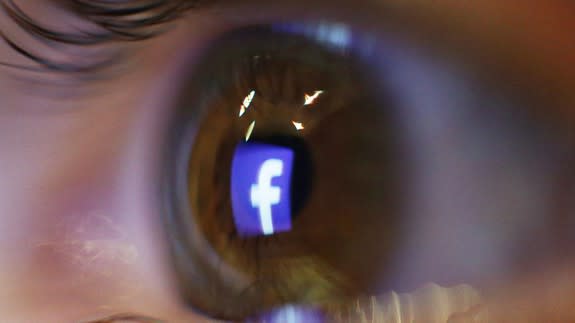Facebook 'lurking' is making you miserable and here's what you can do about it

LONDON — Another study has proved what we already knew but didn't want to admit — Facebook 'lurking' is making you miserable.
A new study by the University of Copenhagen has revealed that regular use of social media such as Facebook can harm your emotional well-being and overall satisfaction with life. The study also presented a solution — one that many of us might not like.
SEE ALSO: Depression rates for teen girls spikes in an age of cyber bullying
The study found that taking a break from social media will have an overwhelmingly positive impact on your overall wellbeing. But, the study also conceded that taking a break isn't necessarily the best option for everyone.
Take a break
The University of Copenhagen conducted a week-long experiment with 1,095 participants in Denmark in late 2015. The participants were put into two groups; one continued to use Facebook as usual, and the other group stopped using Facebook entirely for a week.
By comparing the two groups, researchers found that taking a break from Facebook has a positive impact on two aspects of wellbeing, rendering our life satisfaction and emotions more positive. And, the results showed that this impact was significantly greater for users who "envy others on Facebook", "passive users" and "heavy Facebook users".
During a pre-test, participants were characterised based on the ways they used Facebook. "Facebook-related envy" was calculated in participants by asking them to answer questions about how they felt when they were confronted with information about other people's success and happiness on social media. Active and passive Facebook use was assessed based on how often participants post status updates or photos, comment on friends' posts, and browse newsfeeds and friends' profiles.
"The participants who took a one-week break from Facebook reported significantly higher levels of life satisfaction and a significantly improved emotional life," reads the study, published in the Cyberpsychology, Behavior, and Social Networking journal.
You might not have to quit altogether
The study also showed that the impact of wellbeing varied in relation to how people use Facebook — with "heavy", "passive" and "envious" Facebook users each reporting different effects.
"These findings indicate that it might not be necessary to quit Facebook for good to increase one's well-being. Instead an adjustment of one's behaviour on Facebook could potentially cause a change," reads the study.
"To make things clear, if one is a heavy Facebook user, one should use Facebook less to increase one's well-being. And if one tends to feel envy when on Facebook, one should avoid browsing the sections — or specific friends — on Facebook causing this envy. And if one uses Facebook passively, one should reduce this kind of behaviour," the study continues.
So, instead of taking a break, it might be beneficial to stop browsing specific sections of Facebook to try to combat feelings of envy.
The report conceded, however, that "it may be difficult to change one's way of using Facebook. If this is the case, one should consider quitting Facebook for good".
Limitations to the research
While the study certainly presents us with some interesting solutions worth bearing in mind, the report itself notes that there are some limitations to the research. Firstly, there may have been selection bias in the sample, which consisted of 86 percent women. The findings therefore are not representative of the population and it could be problematic to extend the findings to broader populations.
However, Facebook's negative impact on wellbeing has been well-documented in previous research in recent years. One 2014 study linked Facebook usage to depression, and a 2013 study revealed that Facebook had a negative impact on the wellbeing of young adults.

 Yahoo Finance
Yahoo Finance 